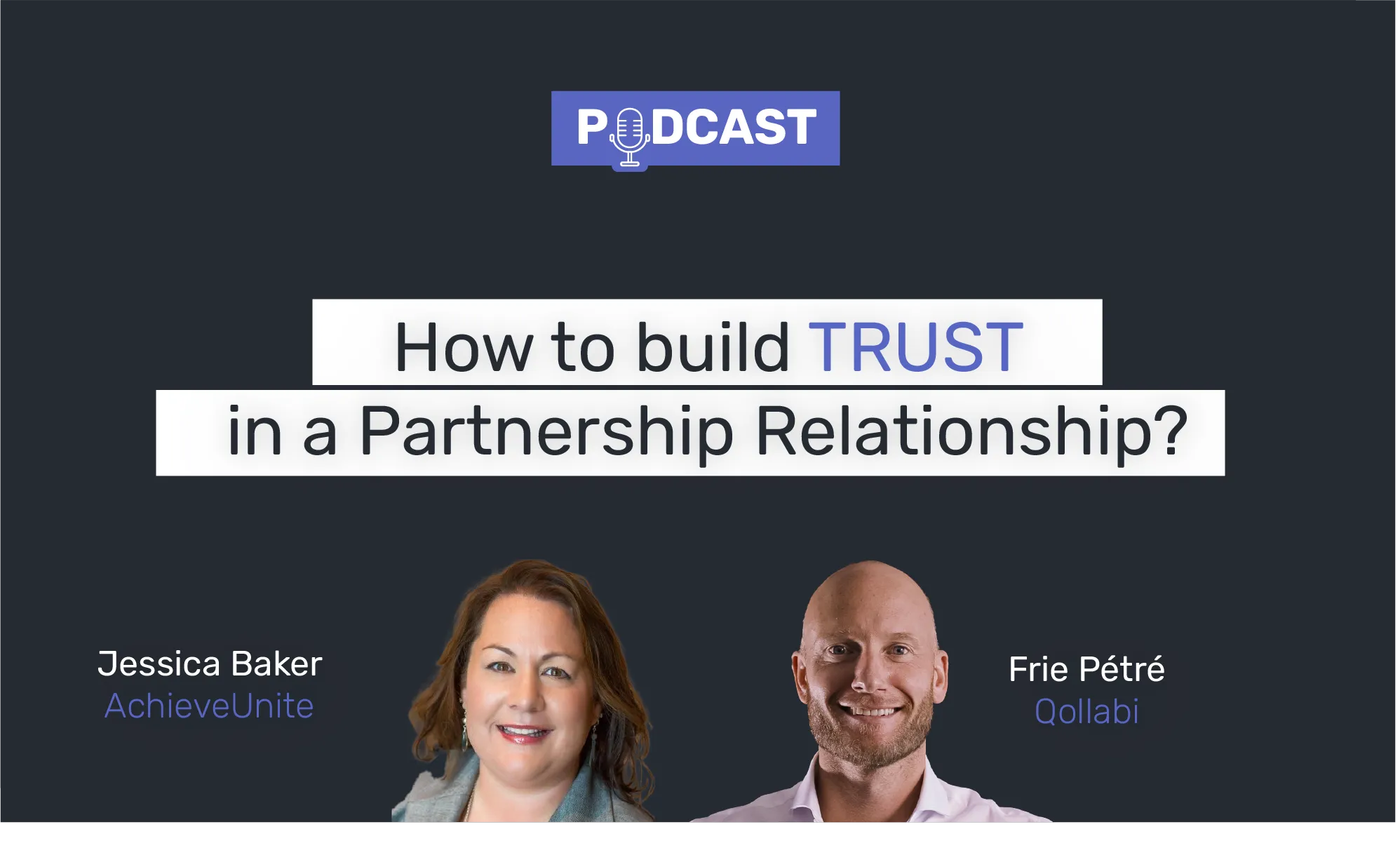
In the dynamic world of channel partnerships, effective planning and collaboration are crucial for achieving mutual success. Gone are the days when quarterly business reviews (QBRs) sufficed to keep partnerships on track. In this webinar, we delve into key takeaways from industry experts Justin (Founder, PartnerPlaybooks), Frie (CEO, Qollabi), and Larry (CEO, Channelnomics). Together, they highlight the importance of Mutual Success Plans (MSPs) and how they can revolutionize the way organizations work with their channel partners.
Learning #1: Rethinking Business Planning
The importance of business planning is not new. The problem is that we don’t do it, or at least not well enough.
As Larry said during the webinar, traditionally speaking, we consider a spreadsheet with lagging indicators (or “end results”) as a true business plan. At the same time, 85% of the partner managers struggle to get partners excited to meet or overachieve on their goals.
A business plan or mutual success plan should start with intent. Sitting down with your partner and establishing goals and activities, walking out of the room with commitment from both sides to make it happen. Just the presence of this plan provides documentation that will lead to accountability.
Besides the importance of planning, there is the need to redefine partner segmentation. Instead of focusing solely on transactional partners, we should consider the broader partner ecosystem. This approach involves recognizing the various types of partners, including influencers, and understanding their potential value.
When we look at the current partners, we often look at them ‘as is.’ Partner organizations have little understanding of the potential of the partners because they don’t have the data to support this. However, the potential of your partners could be one of the main drivers for revenue growth.
Action point: Start cutting the elephant into pieces. Ask your partner managers to select 3 partners they will prioritize and why.
Learning #2: Leveraging OKRs for Effective Planning
OKRs (Objectives and Key Results) emerged as a critical tool for channel managers and partners. Larry highlighted the power of OKRs in aligning objectives and ensuring measurable success.
Taking the time to sit down with your partner and thinking about what success can look like is the main determinant of partner success. OKRs is a process to establish trust and install a difference between the end result (lagging indicators) and the key results (leading indicators). The OKR methodology empowers both parties to establish clear goals and milestones, fostering accountability and commitment.

Compare making a plan with the different options you can go to the grocery store.
- Not making a shopping list: you will probably end up buying too few things you need for the week
- Making a shopping list and forgetting it at your place: you will get closer to all the things you wrote down, but you might forget one or 2 things.
- Bringing the shopping list to the grocery store: you will end up buying more stuff than needed and will “overachieve” what you actually needed
Action Point: To implement OKRs, focus on achievable goals, and create a culture of commitment and accountability.
Learning #3: Transitioning from QBRs to Mutual Success Plans
The webinar shed light on the limitations of traditional Quarterly Business Review (QBR). While valuable in their own right, QBRs have an outdated way of working.
- Both sides of the fence need to spend a lot of time properly preparing for a QBR (it’s a chore!)
- The moment the QBR starts, your data will be outdated
- The focus of a QBR is too much back in time instead of planning forward
- Accountability and commitment afterward are lacking
Mutual Success Plans offer a more dynamic and collaborative alternative. They enable partners to continuously update and support each other, building stronger, more agile relationships. Mutual success plans allow us to define success and pave the way to get to the best next level of the partnership. Creating a plan of development instead of a plan of revenue.
Action Point: Shift from relying solely on QBRs to integrating Mutual Success Plans into your partnership strategy. Embrace real-time updates, accountability, and dynamic collaboration to achieve success.
The Five Pillars of a Mutual Success Plan
To put these learnings into action, consider structuring your Mutual Action Plans around five key pillars:
- Revenue: Clearly define revenue targets for each partner and outline strategies to achieve them.
- Enablement: Develop plans to enable partners through training, resources, and certifications.
- Marketing: Collaborate on marketing initiatives, including webinars, campaigns, and lead generation activities.
- Pipeline Generation: Create a sales-focused approach by tracking leads, conversions, and signed contracts.
- Support: Ensure partners have the necessary support and resources to meet their targets.
In today's rapidly evolving business landscape, channel partnerships require a fresh approach. Mutual Success Plans offer a solution that goes beyond traditional QBRs. By embracing clear objectives, real-time updates, and dynamic collaboration, organizations can build stronger, more successful channel partnerships. It's time to prioritize planning, focus on accountability, and reap the rewards of strategic mutual success.
Are you ready to transform your channel partnerships through Mutual Action Plans? Reach out to us for personalized guidance and discover how automation can make this process even more efficient and effective.



